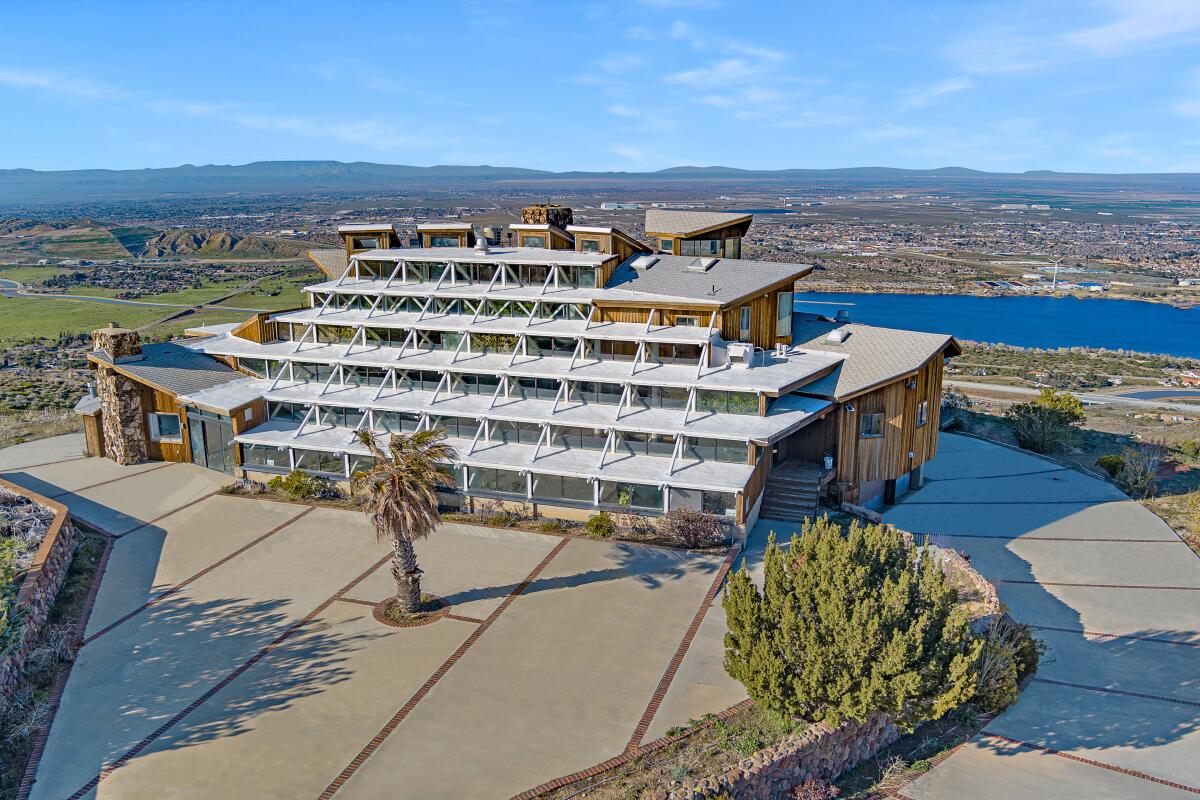The out-of-the-blue battleground for the future of abortion rights
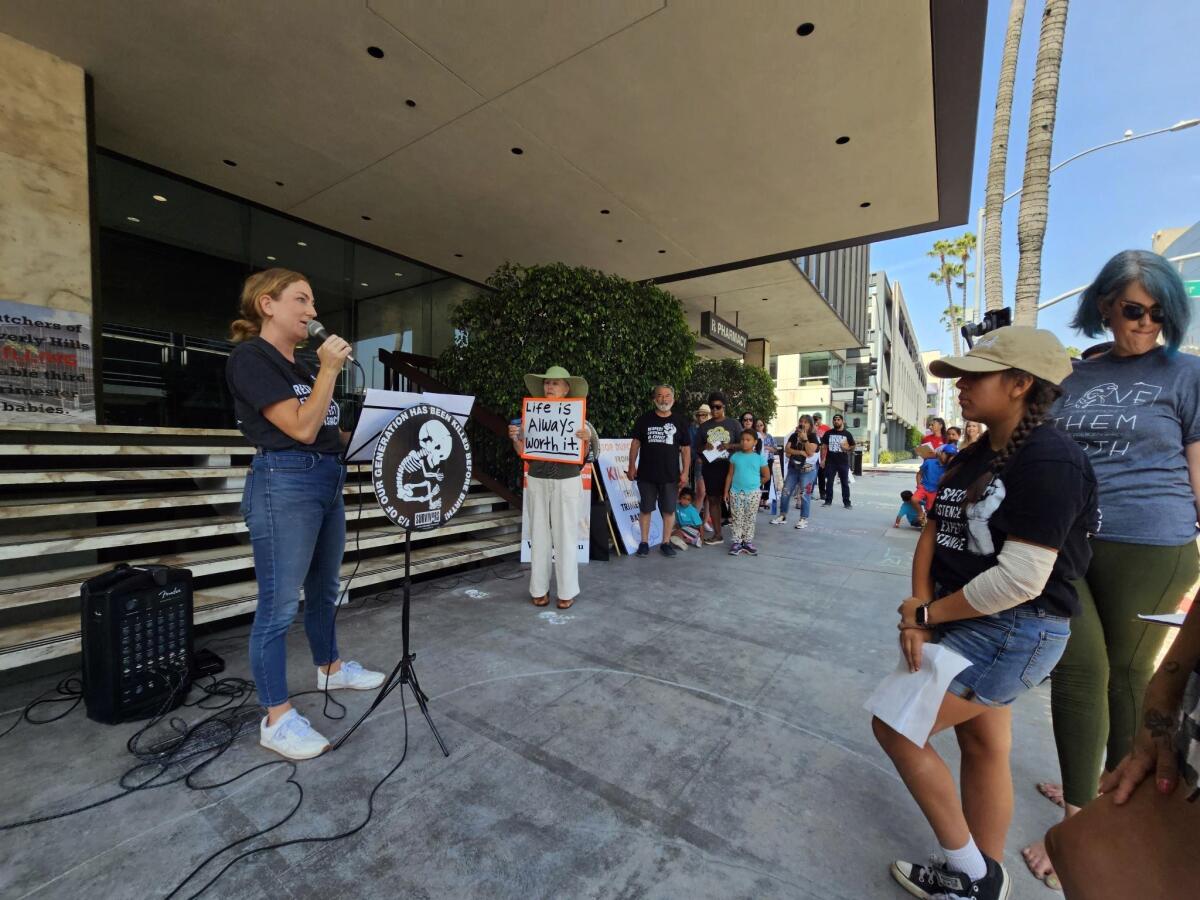
Good morning. It’s Thursday, July 11. Here’s what you need to know to start your day.
- The legal battle over abortion rights heads to Beverly Hills.
- Is the relentless California heat wave finally ending?
- Mansions in the desert: Why Californians buy big in cheap, remote areas.
- And here’s today’s e-newspaper
You're reading the Essential California newsletter
Our reporters guide you through our biggest news, features and recommendations every morning
You may occasionally receive promotional content from the Los Angeles Times.
Abortion rights and the unexpected battleground for its future
Where voters stand on abortion rights, among other issues, will factor into the outcome of the presidential election this November, especially in many battleground states. Tension between supporting and opposing groups, even in “abortion sanctuary” California, is only increasing.
Last summer, members of Survivors of the Abortion Holocaust, an antiabortion group, gathered in front of the Beverly Hills Medical Center to protest against the construction of a fertility clinic pursuing to expand its services in California.
DuPont Clinic, an abortion provider based in Washington, D.C., is specialized in offering procedures after 24 weeks. If opened, it would have been the only such abortion center in Southern California.
But, the cutoff for “fetal viability,” a legal standard instituted under Roe vs. Wade and refined under Planned Parenthood vs. Casey, is widely understood as 24 weeks.
Almost half of Americans say abortion should be illegal at 24 weeks, according to a 2022 Pew Survey. And for fundamentalist Christians like the Survivors (as they call themselves), life begins at fertilization.
For many experts, however, the medical picture is not as straightforward. My colleague Sonja Sharp reported on how this antiabortion group’s Beverly Hills campaign offers a “playbook on future efforts to shut down a clinic” even in the country’s most abortion-protective cities and states. Here’s what you need to know.
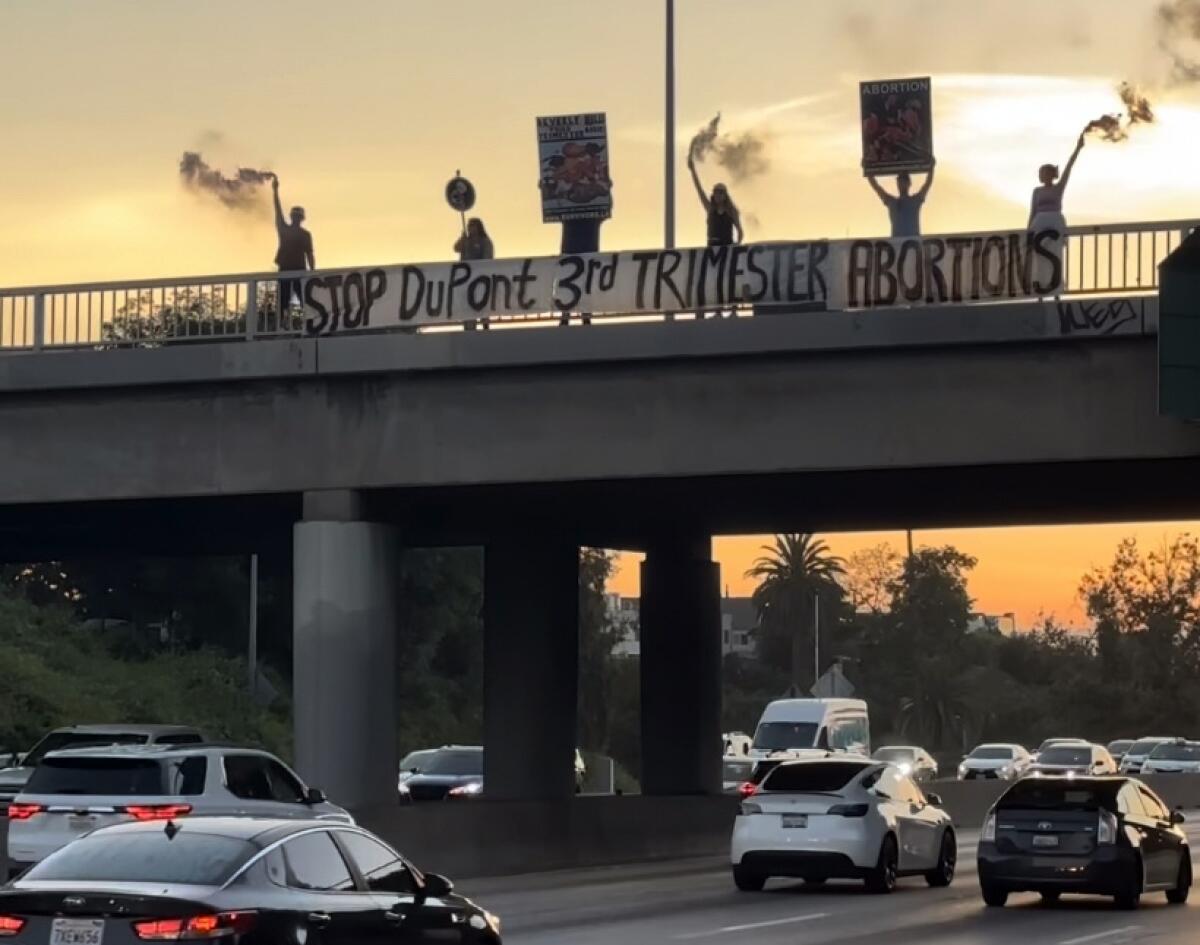
Abortion laws and ambiguous language
First-trimester abortion procedures account for 93% of the total, according to the federal Centers for Disease Control and Prevention, and are now largely induced at home with medication.
Later-stage abortions that happen between 21 and 24 weeks are usually a two-part procedure, via “dilation and evacuation,” and are slightly different from the 6% that happen between 14 and 20 weeks. They can take several hours or days, said Dr. Jennefer Russo, the DuPont Clinic’s chief medical officer. Only 1% of abortions are carried out after 20 weeks and less than 1% of abortions occur after 24 weeks.
Devastating fetal diagnoses, life-threatening maternal complications or pregnancy among very young patients or in the aftermath of abuse are the most common reasons why patients seek such late-term abortions, Dr. Kim Bader, associate professor emeritus of obstetrics and gynecology at USC Keck School of Medicine said.
Abortion is banned at or past 24 weeks in many abortion-protective states such as Massachusetts and New York. In California, the law is a bit more ambiguous: Abortion is banned after “viability,” but a specific gestational age isn’t defined.
“There’s no medical reason to ban abortion based on how far along someone is in pregnancy,” Brittany Fonteno, president of the National Abortion Federation, told Sonja. “This is something that’s been created solely by antiabortion advocates and politicians to chip away at reproductive rights.”
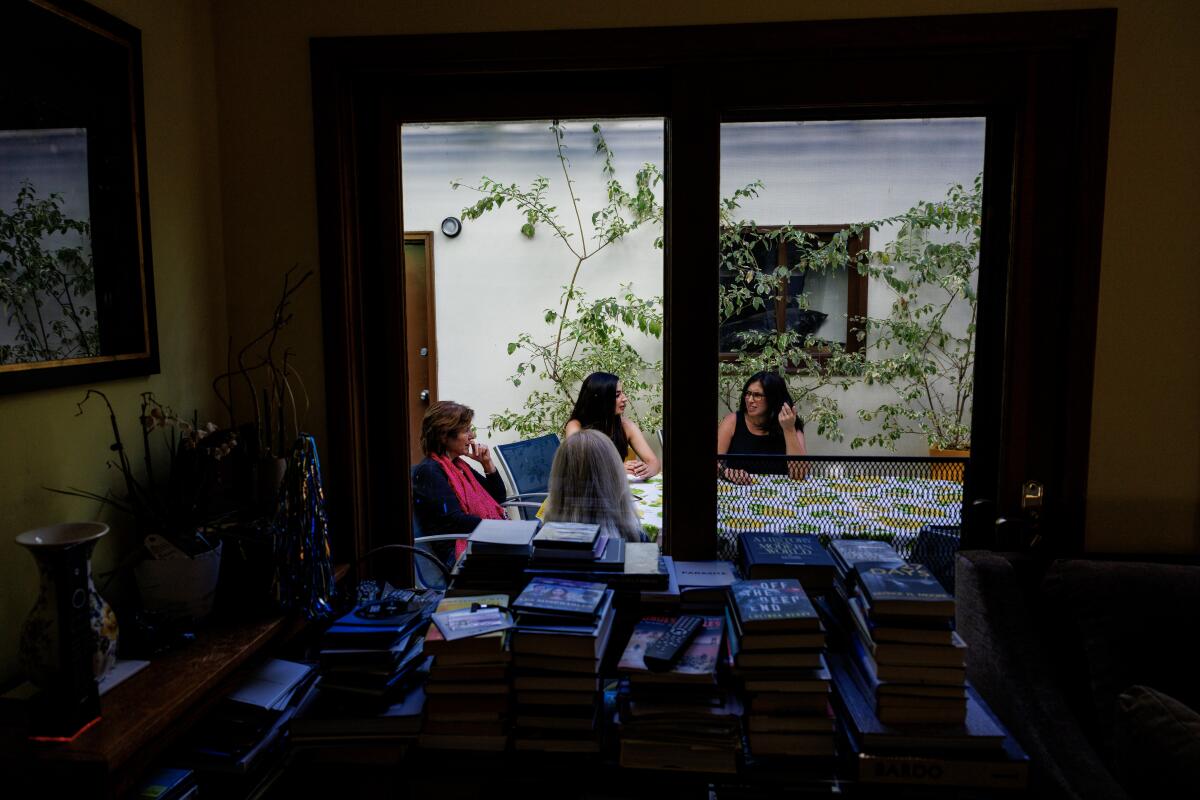
Who broke the law? Protest aftermath leaves more questions than answers
The Survivors continuously allege that DuPont plans to violate the California law on abortions, which the clinic has repeatedly denied. Considered as an extremist group even within California’s antiabortion movement, the Survivors formed unyielding pickets and guerrilla freeway banner drops for weeks.
“We were 100% going to be compliant … but the law isn’t clear,” Russo told Sonja.
Beverly Hills officials moved quickly to address the group’s concerns almost as soon as they were approached, according to public records.
Reproductive rights advocates claim that the officials met with the Survivors and allied activists, aggressively pursuing their concerns, while allegedly not responding to DuPont leadership’s requests to meet with them for months.
Russo said she sought to meet with Beverly Hills officials but was turned down. Email records also show that the mayor of West Hollywood and a Corona city councilwoman had made attempts to contact their Beverly Hills counterparts.
Less than a month after antiabortion activist Tasha Barker met with city officials, landlord firm Douglas Emmett moved to terminate the clinic’s lease and ordered management to halt construction.
“These graphic threats have already disturbed and caused interference with other tenants’ use and enjoyment of their leased premises,” said an email sent by Douglas Emmett’s attorney.
Even weeks after the halting of construction, members from the Survivors including Emma Craig, a Bay Area art teacher and antiabortion activist, continued their protests and publicly claimed that DuPont was expected to open — though they received confirmation from officials that the clinic’s lease was rescinded, emails show.
The city denied allegations that it refused to meet with DuPont leadership and that it helped shut down the clinic.
Reproductive rights advocates like Andrea Grossman, one of the founders of Beverly Hills for Choice, consider this issue a “stain on the city that it meddled with something so urgent as this.”
She quickly organized with Gray Abrams, Heather Fels and Amanda Smith, giving themselves the nickname “abortion yentas,” borrowing the Yiddish word for a busybody or gossip. The Survivors’ name alone is offensive for the yentas.
The group has pushed for an independent investigation into the incident, alleging that the city “colluded and conspired” with the landlord to “induce breach of contract.” The city and landlord have denied these claims. The case, along with the DuPont’s ongoing litigation against the landlord and city, remain pending.
“If you could push a clinic like this out of Beverly Hills,” Bader said, “you could push it out of anywhere.”
Today’s top stories
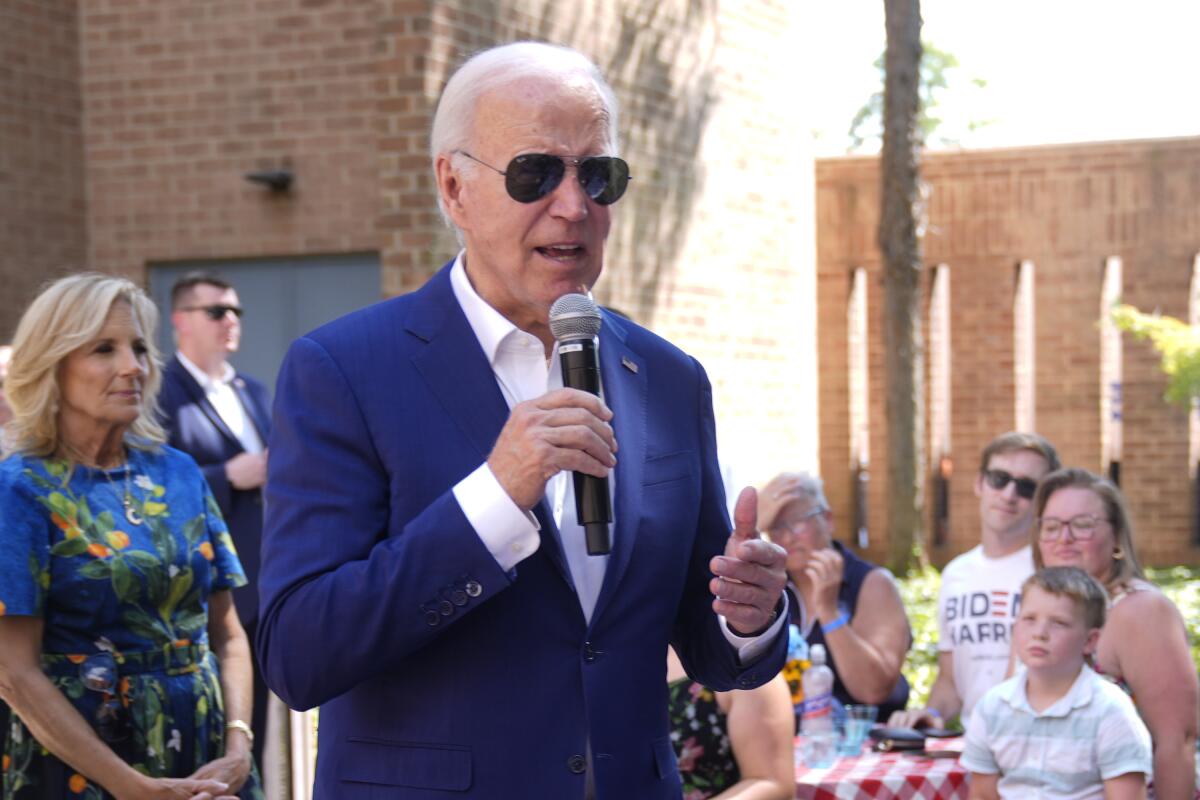
Joe Biden
- Newsom stands by Biden, repeats that he wouldn’t run against Harris.
- Amid furor over reelection bid, Biden turns to his longtime backers: Democratic mayors.
- Pelosi sends signal to Biden: ‘Time is running short.’
- George Clooney calls on president to step aside: Aging Biden no longer the man he was.
- In a video shared by TMZ, George Stephanopoulos says Biden can’t ‘serve four more years.’
Crime and courts
- L.A. robber stole a Rolex and got no-prison deal from D.A. Now he’s accused of killing a tourist at mall.
- A botched robbery. A tourist run over and killed. Violence erupts at upscale Newport Beach mall.
- Plot thickens in Oakland as grand jury investigates influential family, Mayor Thao and her partner.
- Anaheim cop accused of raping a woman after tracking her from an In-N-Out.
California heatwave
- Is the relentless California heat wave finally ending? Slight cooling is on tap for weekend.
- How Death Valley National Park is keeping visitors alive amid record temperatures.
Hollywood
- Film and TV crews protest long hours and overnight shifts. ‘We are dying to entertain people.’
- U.S. film and TV production down 40% from peak TV levels, a report says.
More big stories
- Doctors said cutting countertops destroyed his lungs. He had to fight for workers’ comp.
- Ultra-runner near the end of a 50-mile excursion was attacked by a bear in Yosemite Valley.
- These are the Vons, Pavilions, Albertsons to be sold in California under proposed merger.
- DWP ratepayer advocate predicts fee increases, recommends delaying city’s 100% clean energy timeline.
- CNN to cut 100 jobs as it prepares to launch digital subscription products.
- 100 native trees will be planted in Elysian Park for the Broad’s Joseph Beuys exhibition.
- ‘Just wrong and shameful’: Visitors slammed for trashing Yosemite National Park with toilet paper.
- Southern California home prices keep rising; up nearly 8% in June to all-time highs.
Get unlimited access to the Los Angeles Times. Subscribe here.
Commentary and opinions
- Michael Hiltzik: Investing through index funds is more popular than ever, so why is it becoming controversial?
- Editorial: One candidate is patently unfit for the White House. It’s not Biden.
- Anita Chabria: George Clooney drops a truth bomb about Biden. Now what?
- Jackie Calmes: Step aside, Joe. It’s time.
- Harry Litman: Will Trump’s conviction survive the Supreme Court’s immunity ruling? It’s complicated.
Today’s great reads
Mansions in the desert: Why Californians buy big in cheap, remote areas. As L.A. home prices rise, some are trying to get more bang for their buck in the desert, where they’re finding surprisingly affordable mansions.
Other great reads
- Inside the design of intricate, crystal-patterned U.S. Olympic gymnastics team leotards.
- How Netflix fans and ‘The Voice’ are making Reba McEntire’s sitcom a hit again.
- ‘Year of the lesbian’: How queer women are breaking San Francisco’s doom loop.
- This country banned TikTok. What became of its influencers?
How can we make this newsletter more useful? Send comments to [email protected].
For your downtime
Going out
- 😀 Looking for good vibes in L.A.? 22 readers share their ‘happy place.’
- 🍔 🦪 Burgers, ice cream, oyster bars and great patios: What and where to eat in L.A. this summer.
Staying in
- 📺 ‘Sunny,’ — now airing on Apple TV+—led by a powerful Rashida Jones, is best when focused on personal relationships.
- 🍅 🧅 Here’s a recipe for marinated tomatoes and onions.
- ✏️ Get our free daily crossword puzzle, sudoku, word search and arcade games.
And finally ... from our archives
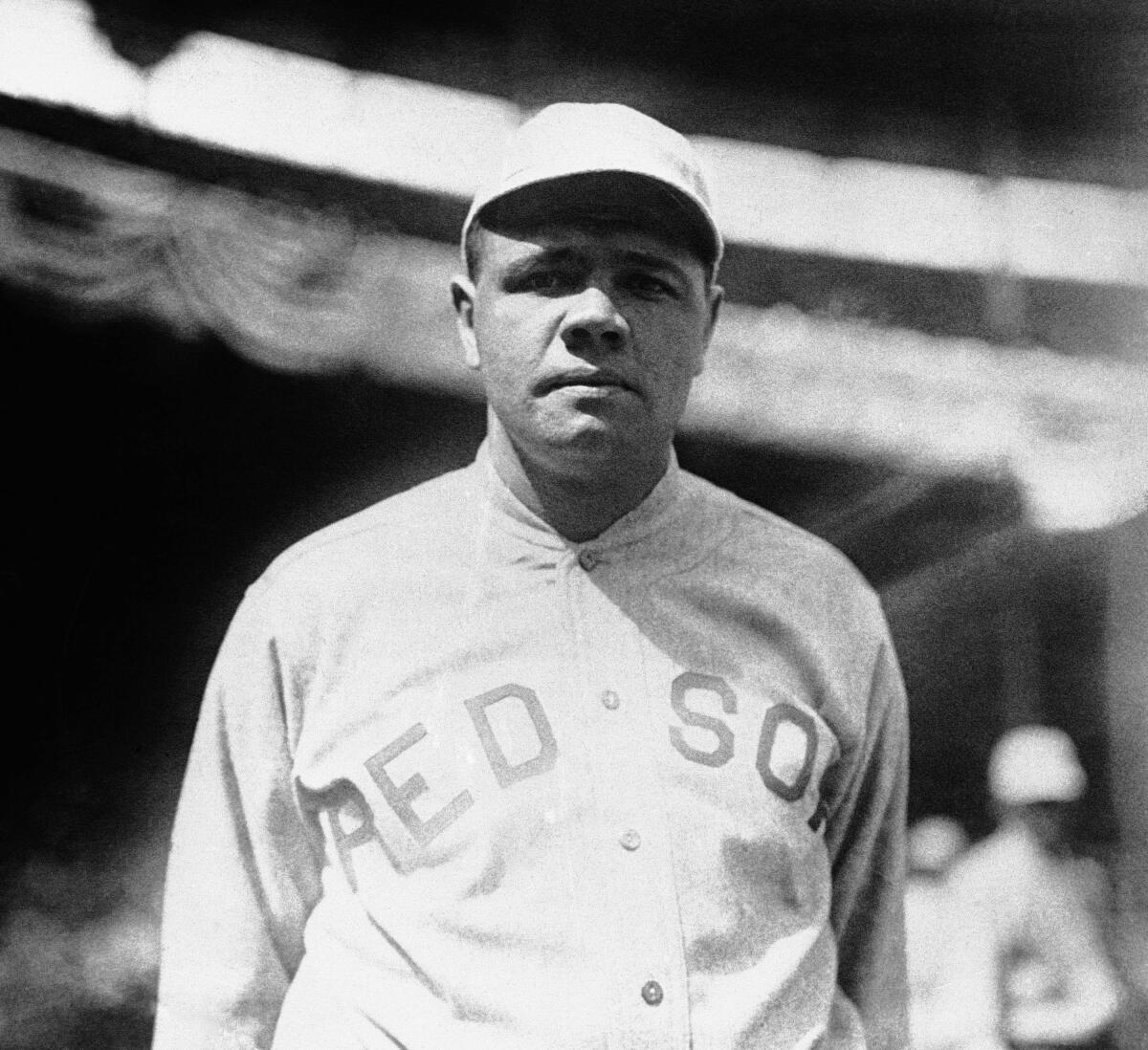
On July 11, 1914, George Herman “Babe” Ruth played in his first major league baseball game for the Boston Red Sox.
A hundred years after his big league debut, the Times’ Chris Dufresne wrote about why Ruth is still larger than life.
Have a great day, from the Essential California team
Defne Karabatur, fellow
Kevinisha Walker, multiplatform editor and Saturday reporter
Christian Orozco, assistant editor
Stephanie Chavez, deputy metro editor
Karim Doumar, head of newsletters
Check our top stories, topics and the latest articles on latimes.com.
Sign up for Essential California
The most important California stories and recommendations in your inbox every morning.
You may occasionally receive promotional content from the Los Angeles Times.
